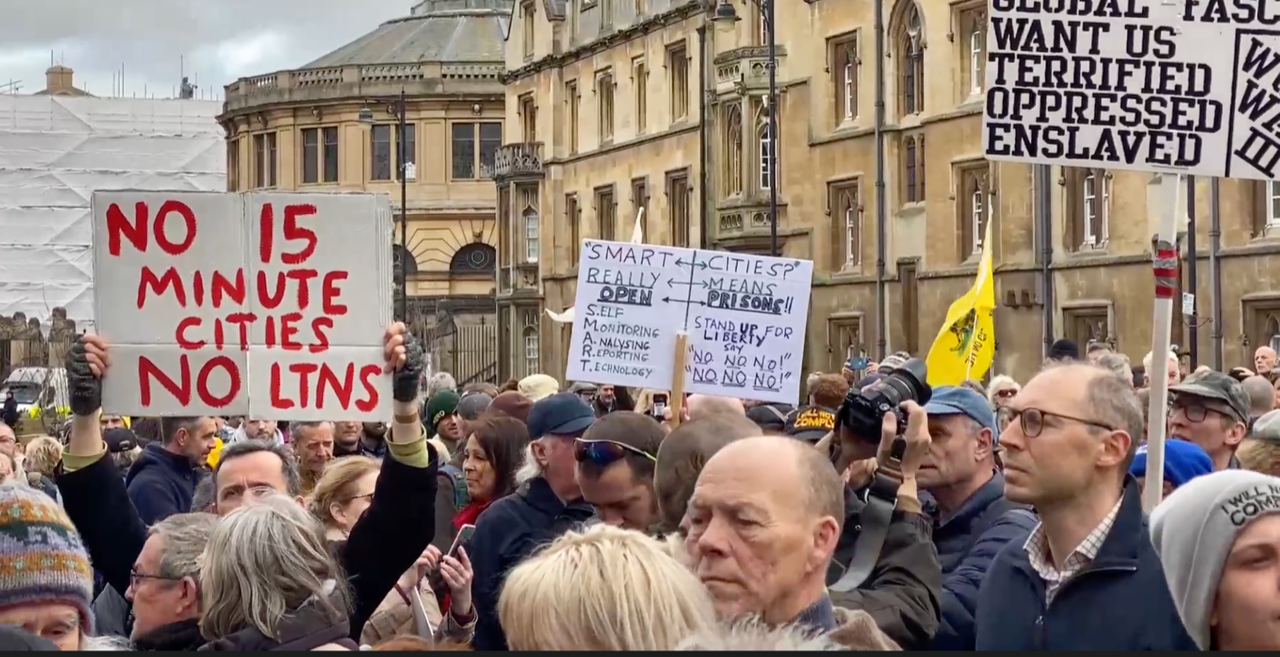Trolls take note: the 15-minute city is about improving lives not …

Have you heard the latest theory? The one about 15-minute cities? Yes, that’s right, the phrase coined by Professor Carlos Moreno has become the latest cause célèbre for a group of people looking for evidence that an indeterminate “they” are doing everything they can to deprive citizens of their hard-earned freedoms.
With lockdowns and vaccines in the rear-view mirror, attention has turned to an urban planning concept that barely features on the radar of the average citizen.
According to this group, the concept is the latest evidence of the World Economic Forum’s Great Reset. Lockdowns, zero carbon initiatives and concepts like the 15-minute city are the tools used to surreptitiously ease the world towards an Orwellian dystopia in which a citizen’s every move is restricted and monitored.
Nick Fletcher, Conservative MP for the UK constituency of Don Valley summed it up when he asked, in the House of Commons, for a debate on the “international socialist concept of so-called 15-minute cities”, sparking coverage on a litany of right-leaning broadcast and print publications around the world.
Hot off the heels of that intervention, an unknown number of people attended the Stop Oxford: no 15 Minute Cities rally, held this weekend in one of the UK’s great university cities.
Their primary motive was to campaign against the installation of Low Traffic Neighbourhoods (LTN) in Oxford, in which so called “model filters” are installed to prevent vehicles from cutting through residential roads to getting from A to B.
Often camera controlled, a vehicle passing through a filter without permission will be fined. This means through traffic on the roads within the LTN reduces significantly which, it is argued, improves air quality and creates an environment much more conducive for active forms of transport, such as walking, wheeling, and cycling.
The campaigners against these interventions argue they do not achieve their objectives, instead they constitute a power grab by the state to undermine the freedom of the individual. There are those that argue the network of cameras rolled out for LTNs and the push towards 15-minute cities are part of an effort to set up the infrastructure to make control of the population much easier.
Among those who spoke in Oxford were Laurence Fox, the actor turned political activist who has campaigned against “woke culture” and “political correctness” and was a leading voice in the campaign against lockdowns in UK during the height of the COVID-19 pandemic.
However, Fox was outshone by the campaign’s Child Freedom Ambassador Jasmine, a young girl whose rousing and articulate speech has been viewed nearly a million times on Twitter.
Jasmine claimed Europe was entering the beginnings of a “Chinafication” process in preparation for a social credits system, and that 15-minute neighbourhoods would soon become digital ID facial recognition zones.
The emergency of this topic as a source of contention has followed the populist playbook to the letter. Hyperbole, exaggeration, dogma and, occasionally, conspiracy take on enhanced roles in the discourse, at the expense of evidence.
High profile personalities amplify that discourse and suddenly a fringe set of views are elevated to a central role in public debate. LTNs in the UK are a classic example of this. As more evidence is published to demonstrate the positive impact they have in reducing vehicular traffic and improving air quality, the discourse has moved on to claiming they are turning neighbourhoods into prisons, and Britain into China.
To take it back to the concept itself, the 15-minute city is a simple one – the services and amenities you need for day-to-day life should reside within a 15-minute walk or cycle from your front door.
When adopted, this concept frames urban planning policy and, in theory, leads to reduced pollution and better health within a community, as people need to complete fewer journeys vehicle. That is not to say the vehicle is redundant. There is still a need for vehicular journeys and there will always be groups that rely on cars to get around, but the overall quantum of vehicular traffic declines.
In practical terms, major cities have made strides to realising this vision, with the likes of the Netherlands and Denmark leading the way (it is no coincidence the likes of The Hague and Copenhagen feature highly in any quality of life index you can view). Efforts are also being pursued in Australia’s major cities.
Australia’s targets are to grow active transport
In Queensland, the target is for one in five trips to be done by walking and cycling by 2026. In Victoria and NSW, efforts to install new cycleways are underway as part of ambitious long-term plans to have more journeys completed by active modes of transport.
To the policy makers and advocates, get prepared with the messaging and evidence you need to make the calm, rational case for active transport interventions
The momentum in Australia seems to be behind measures to encourage walking and cycling but this cannot be taken for granted. The pushback in the UK will not be isolated, and it is inevitable that the networks that have globalised various culture wars will do so here.
Spinifex is an opinion column open to all our readers. We require 700+ words on issues related to sustainability especially in the built environment and in business. Contact us to submit your column or for a more detailed brief.
To the policy makers and advocates, get prepared with the messaging and evidence you need to make the calm, rational case for active transport interventions. Remember the evidence is on the side of those who back active transport initiatives, and no amount of mischaracterisation can change the fact the 15-minute city is about improving lives, not controlling them.
While the 15-minute city might be giving 15 minutes of fame to its opponents, the concept, and the interventions made in its name, will continue to improve lives well beyond the lifespan of the current attention it is being given.


